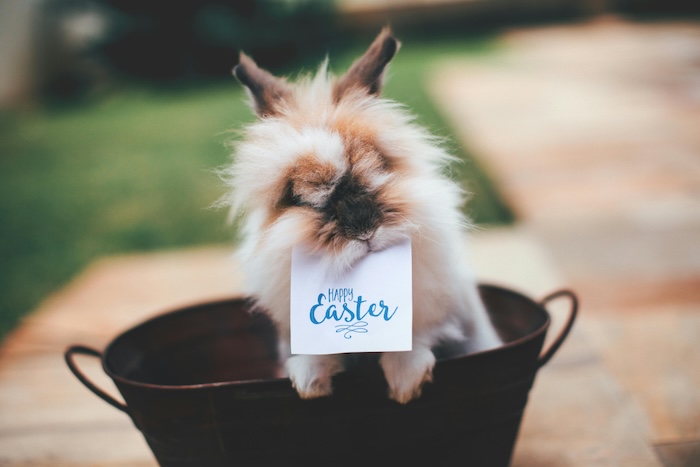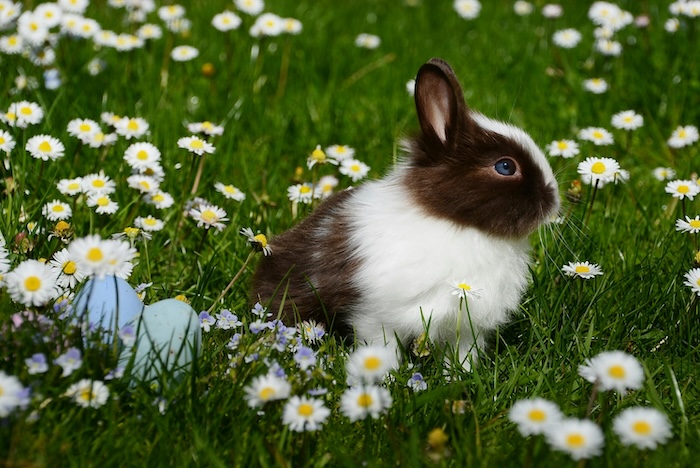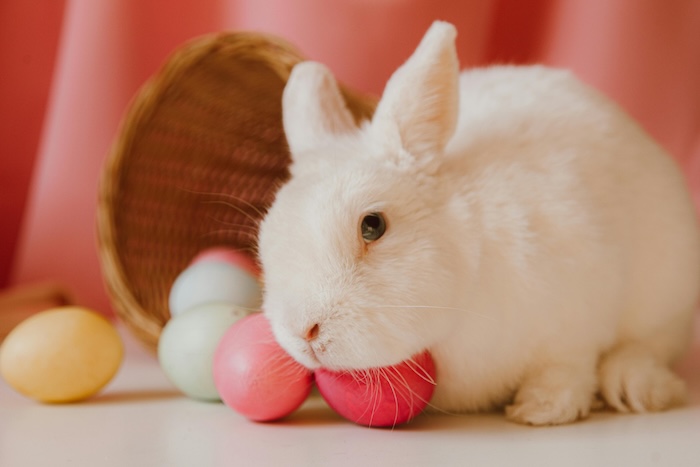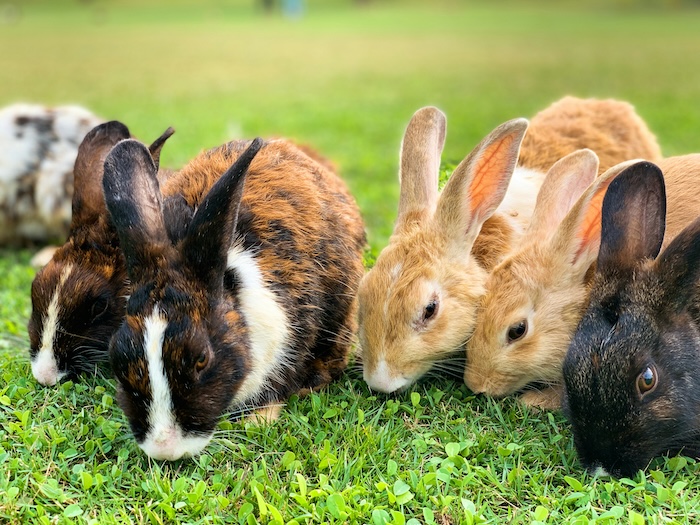As Easter approaches, the idea of giving a bunny as a gift might seem like a whimsical and charming gesture. However, before you decide to surprise someone with a furry friend, it’s crucial to understand the significant responsibilities and potential risks involved in rabbit ownership. While rabbits can make wonderful pets, they are not suitable for everyone, and gifting one without careful consideration can lead to a negative experience for both the owner and the bunny.

Lifespan and Commitment
One of the most critical factors to consider before gifting a bunny is the lifespan and long-term commitment required. Rabbits can live anywhere from 8 to 12 years or even longer with proper care. Many people underestimate the commitment involved in caring for a rabbit, assuming they are low-maintenance pets. However, rabbits require daily care, attention, and mental stimulation to thrive. They are social animals that need companionship and can become lonely and bored without it. Before gifting a rabbit, consider whether the recipient is prepared for the long-term commitment and responsibility of caring for a pet for potentially over a decade.
Space and Housing
Another essential consideration is the space and housing required for a rabbit. Rabbits need a significant amount of space to live happily and healthily. They should have a spacious cage or hutch that allows them to stretch out fully and stand up on their hind legs without their ears touching the top. Additionally, rabbits require a safe and secure outdoor space to exercise and explore. Many people underestimate the space requirements of rabbits and end up keeping them in cramped conditions, which can lead to health and behavioral issues.

Financial Responsibility
Owning a rabbit also comes with financial responsibilities. In addition to the initial cost of purchasing or adopting a rabbit, there are ongoing expenses such as food, bedding, toys, and veterinary care. Rabbits require regular veterinary check-ups and may need treatment for dental problems, gastrointestinal issues, or other health issues. It’s essential to consider whether the recipient is prepared to take on these financial responsibilities before gifting a rabbit.
The cost of supplies, food, and housing for a pet rabbit can vary depending on several factors, including the quality of the items purchased, the size of the rabbit, and regional pricing differences. However, here is a rough estimate of the average costs:
- Housing: A suitable cage or hutch for a rabbit can cost anywhere from $50 to $200 or more, depending on the size and quality. A larger enclosure is generally better for a rabbit’s well-being.
- Bedding: Bedding materials such as hay, straw, or paper-based bedding can cost around $20 to $50 per month, depending on the type and brand.
- Food: High-quality rabbit pellets cost around $10 to $20 per month, and fresh vegetables and hay can cost an additional $20 to $30 per month, depending on the amount and variety.
- Toys and Enrichment: Toys and enrichment items are essential for keeping a rabbit mentally stimulated and physically active. These can cost around $20 to $50 initially, with additional costs for replacement toys and items over time.
- Litter Box and Litter: A litter box and litter for a rabbit can cost around $20 to $40 initially, with ongoing costs for litter refills.
- Grooming Supplies: Grooming supplies such as a brush, nail clippers, and ear cleaner can cost around $10 to $20 initially.
- Initial Veterinary Costs: The cost of spaying or neutering a rabbit can vary widely but generally ranges from $50 to $250 or more. Additionally, an initial veterinary check-up can cost around $50 to $100.
- Ongoing Veterinary Costs: Rabbits require regular veterinary check-ups and may need treatment for dental problems, gastrointestinal issues, or other health issues. The cost of veterinary care can vary widely but generally ranges from $50 to $100 or more per visit.
Overall, the average cost of supplies, food, and housing for a pet rabbit can range from $500 to $1,000 or more per year, depending on the rabbit’s size and needs. It’s important to budget for these costs and ensure that you can provide for your rabbit’s needs before bringing one into your home.

Health and Veterinary Care
Rabbits require regular veterinary care to stay healthy. They should be spayed or neutered to prevent health issues and unwanted litters. Additionally, rabbits are prone to dental problems and gastrointestinal issues, so it’s crucial to have a knowledgeable exotic animal veterinarian available for regular check-ups and in case of emergencies. Many people are unaware of the specific health needs of rabbits and may not be prepared to provide the necessary care.
Finding a Proper Vet
Finding a veterinarian who is knowledgeable about rabbits would be essential for ensuring your bunny receives proper care. Here are some steps you might have to take to find a vet for your rabbit:
- Ask for Recommendations: Start by asking friends, family, or local rabbit rescue organizations for recommendations. They may know of veterinarians who are experienced in treating rabbits.
- Search Online: Use online resources to search for veterinarians in your area who specialize in exotic or small animal care. Look for reviews and ratings from other rabbit owners to help you make an informed decision.
- Contact Local Animal Shelters or Rescue Organizations: Animal shelters and rescue organizations that deal with rabbits may be able to recommend veterinarians who are experienced in treating rabbits.
- Check with Veterinary Schools: Veterinary schools often have faculty members who specialize in exotic animal care, including rabbits. Contacting a veterinary school in your area may lead you to a knowledgeable veterinarian.
- Visit the Clinic: Once you have a list of potential veterinarians, consider visiting the clinic to see if it is clean, well-equipped, and staffed by friendly and knowledgeable professionals. This can give you a sense of whether the clinic is a good fit for your rabbit’s care.
- Ask Questions: When you find a veterinarian you are considering, don’t hesitate to ask questions about their experience and approach to rabbit care. A good veterinarian will be happy to answer your questions and address any concerns you may have.
- Attend a Check-Up: Schedule a check-up for your rabbit to meet the veterinarian and see how they interact with your pet. This will give you a sense of whether the veterinarian is a good fit for your rabbit’s ongoing care.
The Need for Spaying and Neutering
Rabbits are known for their reproductive efficiency, and they can breed very quickly if they are not spayed or neutered. A female rabbit, or doe, can become pregnant as early as 3-4 months of age and can have a litter of 4-12 babies, or kits, every 31 days. This means that a single pair of rabbits can potentially produce hundreds of offspring in a year under ideal conditions.
Rabbits are induced ovulators, which means they ovulate in response to mating. This, combined with their short gestation period of about 31 days, allows them to reproduce rapidly. Additionally, female rabbits can become pregnant again very shortly after giving birth, sometimes within a few days. This continuous cycle of pregnancy and reproduction is why rabbits are known for their prolific breeding.
Because of their rapid reproduction rate, it’s essential to spay or neuter pet rabbits to prevent unwanted litters and to help manage the rabbit population responsibly. Spaying or neutering also has health benefits for rabbits, including reducing the risk of certain reproductive cancers and behavioral issues.

Education and Research
Before bringing a rabbit into their home, the recipient should be educated about rabbit care and behavior. It’s essential to research rabbit care thoroughly and understand their dietary, housing, and social needs. Providing the recipient with resources such as books, websites, or information from reputable rabbit organizations can help them prepare for their new pet. Unfortunately, many people receive rabbits as gifts without adequate knowledge or preparation, leading to misunderstandings and inadequate care.
The Risks of Impulse Gifting
Gifting a rabbit on impulse, especially for Easter, can have serious consequences for both the owner and the bunny. Many rabbits given as gifts end up being neglected, abandoned, or surrendered to shelters when the novelty wears off or the recipient realizes they are unable to provide the necessary care. This can be a traumatic experience for the rabbit, who may end up in a shelter or rescue organization, facing an uncertain future.
According to the American Society for the Prevention of Cruelty to Animals (ASPCA), there is often an increase in rabbit adoptions and purchases around Easter. The House Rabbit Society estimates that 80% of rabbits given as gifts for Easter end up abandoned or in shelters.

How to Help
Instead of gifting a rabbit, consider other ways to celebrate Easter that don’t involve live animals. There are many organizations dedicated to rescuing and rehoming rabbits, as well as providing education and awareness about rabbit care. Supporting these organizations through donations or volunteer work can help make a positive impact on the lives of rabbits in need. Some organizations, such as the House Rabbit Society, offer resources for learning about rabbit care and behavior, as well as tips for finding a reputable rescue organization or shelter if you are considering adopting a rabbit.

In conclusion, while the idea of giving a bunny as a gift may seem like a sweet gesture, it’s essential to consider the significant responsibilities and potential risks involved. Gifting a rabbit without careful consideration can lead to a negative experience for both the owner and the bunny, potentially resulting in neglect, abandonment, or surrender. Instead of gifting a rabbit, consider supporting organizations that rescue and rehome rabbits and provide education and awareness about responsible rabbit ownership. Together, we can help ensure that rabbits are given the care and respect they deserve.
